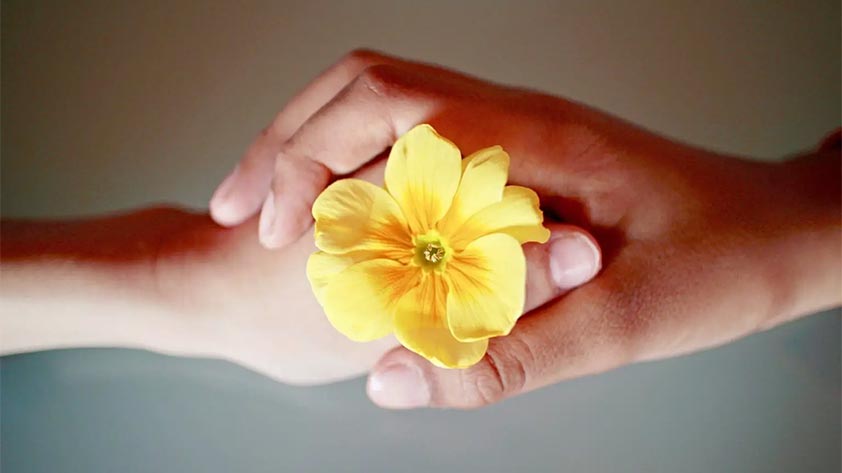
Over the years, religious scholars and philosophers have taken a keen interest in gratitude, but it did not gain much attention from scientists. Sociologists and psychologists carried out foundational works on defining gratitude, but its benefit to human health and how to develop gratitude was not a subject of interest.
This was the case of gratitude as a subject area for research until the early 2000’s when the expression of gratefulness started becoming popular in research. The benefit of gratitude to human health became known, and gratitude is now used as an intervention for mental health and wellness. Want to learn more? Then continue on for Wellness and The 3 Levels of Gratitude!
Gratitude is a positive emotion expressed to show appreciation to someone, something or the creator for gifts or aids. Showing gratefulness can be verbally saying “thank you”. The American Psychological Association defines gratitude as “a sense of happiness and thankfulness in response to a fortunate happenstance or tangible gift“.
Gratitude is Perceived Differently by Individuals
Gratitude is perceived differently by individuals based on experiences or context, but according to Emmons and McCullough, gratitude involves a two-step process. The first step to gratitude is recognizing the goodness in one’s life. To show gratitude, we must look beyond the hardships in our lives and appreciate the positives that make life worth living.
The second step is understanding that the blessings in our lives do not come from ourselves, it comes from an external source. We have been blessed or received goodness from others or the creator, to whom we are grateful.
These two-step processes are all-encompassing in the meaning of gratefulness. If we ponder over this two-step process, we will understand that gratitude is showing happiness and appreciation for the things that matter and appreciating the one that has caused us to have that gift or where the blessings are coming from.
Be as Grateful as You Can Be
When faced with challenges, we are fixed on a specific outcome and believe that our lives will be miserable and not worth living without that desired outcome.
We overlook the little blessings in our lives that others wish they had, and we become sad and depressed over the things that are ‘missing’. This is not to say that our pains and struggles are irrelevant, no matter how small they may seem, but it is to understand that no matter what we are going through, someone somewhere has it worse than us.
Appreciating the little blessings in our lives that are absent in other people’s lives makes our hardship lighter. Being grateful is linked to other emotions like happiness, joy, contentment and love. It strengthens the relationship between people because you acknowledge what others have done for you and appreciate them.
Specifically, when you show gratitude to God, you strengthen your relationship with Him, which gives you peace and tranquility, and God blesses you in ways beyond your imagination.
Health Benefits of Gratitude
Research has shown that being grateful immensely benefits mental health and well-being. It helps reduce stress and symptoms of anxiety and depression and prevents suicidal thoughts. It also improves interpersonal relationships (Allen, 2018). However, there is no conclusion on whether gratitude positively impacts our physical health.
Some studies have associated gratefulness with better sleep, a healthier heart, improved immunity, healthier food choices and less aches and pains, while others have reported mixed results (Allen, 2018). Researchers have said that more research is needed to ascertain the relationship between feeling grateful and physical health.
Gratitude Affects Your Health and Well-Being
Nevertheless, gratitude greatly benefits our health and well-being, and studies have shown that grateful people have reported healthier life and fewer health problems (Allen, 2018).
A question was posed in the article written by Summer Allen in the Greater Good Magazine. The question goes thus, “does gratitude cause good health, or does good health cause gratitude or is it something else that makes us both grateful and healthy?”
The article stated that studies suggest grateful people have better health; however, they could also indicate that people with poor health are less likely to feel grateful. This is an area that needs extensive research to know how much of an effect being grateful has on our physical health.
The Three Levels of Gratitude
Affective Trait
This is the natural predisposition of a person to be grateful. This means that it is the nature of a person to be grateful, so this person is always grateful regardless of their emotion or situation.
Mood
This type of gratitude fluctuates over time, depending on a person’s mood at a particular time. One might feel more grateful at one point and less grateful at another. The gratitude trait is not affected by daily mood fluctuations.
Emotions
Emotional gratitude is expressed due to the occurrence of an event or experience. It is a short-term expression of gratitude which can be a result of receiving a gift. Let us put aside all the scientific evidence and research and imagine this scenario for a moment.
“You have a comfortable home but are annoyed and depressed that you cannot afford a bigger house. You are pressured by your peers to own your dream home, and you keep stressing about why you cannot be like them. One day, in the middle of winter, you come across someone sitting by the roadside, struggling to cover themselves with a thin layer of cloth.
Your curiosity got the better of you, and you asked them what they were doing out in the cold. Shakingly, the person replied, “I do not have a home.” At that moment, what will be going through your head? “This person would wish they had my home, yet I am ungrateful for what I have.”
This small event should help remind you to appreciate the good things in your life, cherishing little moments, and extending kindness to others. You start counting your blessings and give less importance to your obstacles. Gratitude elevates your positive emotions and is the best prescription for mental wellness.









